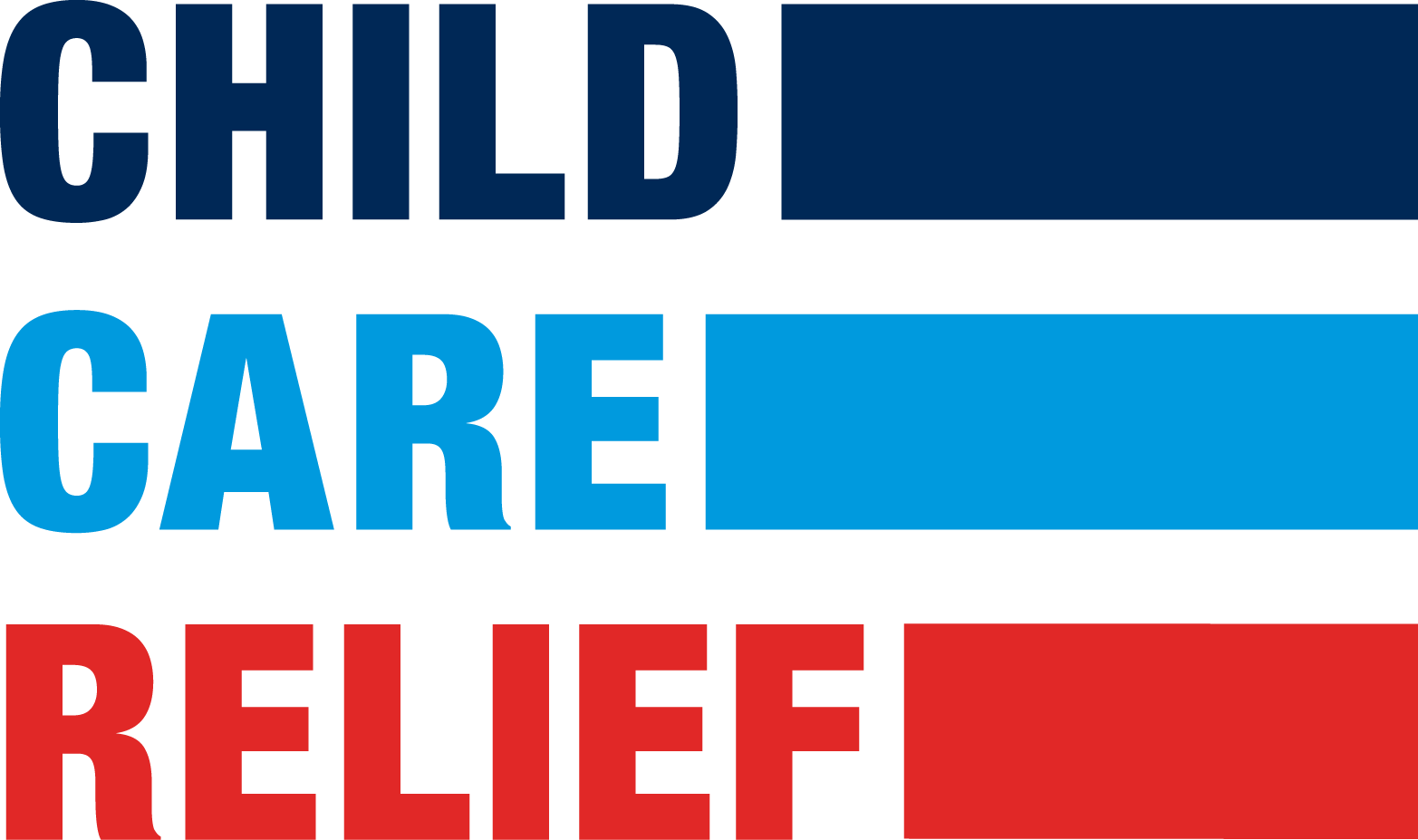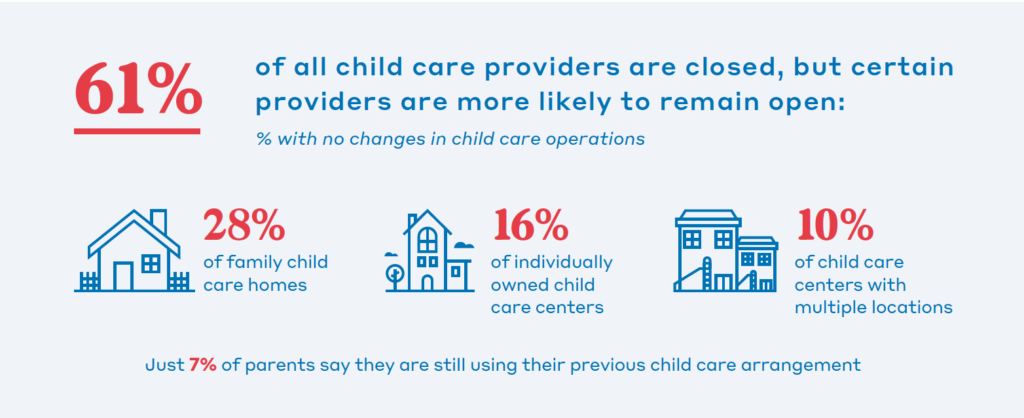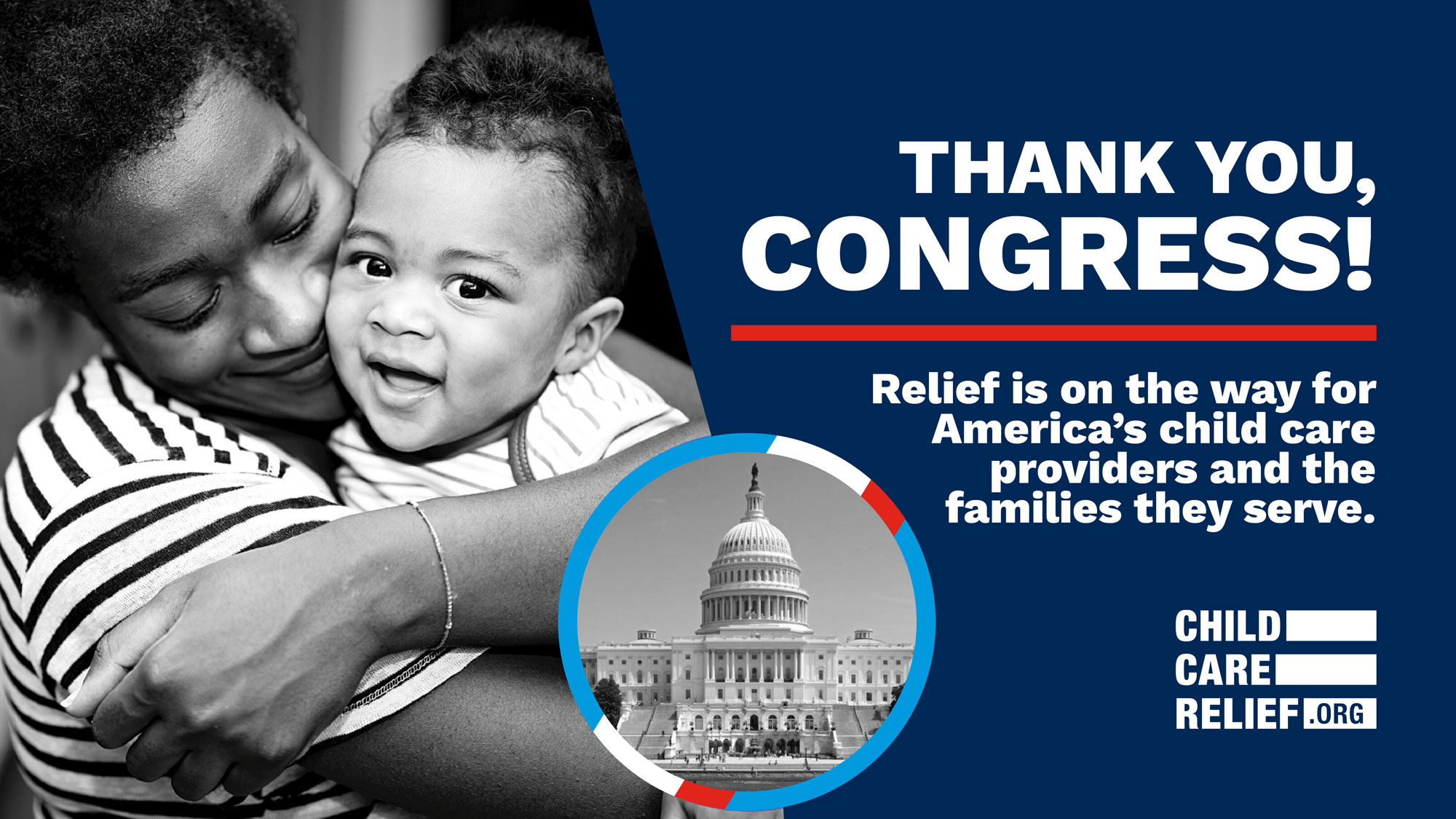
BPC/Morning Consult Parent Survey: Child Care in the Time of Coronavirus
A new survey conducted by the Bipartisan Policy Center and Morning Consult finds that child care in the United States is still necessary for parents to work, even amidst changing work environments. But child care is difficult to find and in many circumstances, closed indefinitely. This leaves parents who are working at home on their own to juggle their work and caregiving responsibilities. At the same time, frontline or essential workers who need formal child care face widespread program closures which can prevent them from finding the care they need.

Work and the Need for Care. Child care is essential for parents of young children if they are to work. Of parents surveyed, 56% said they or someone in their household is now working either remotely or at home. Only 14% represented a household where nobody has yet experienced a change in their work situation. About half (49%) of parents said they or someone in their household can care for their children during this time. The widespread change in work environments does not change the fact that many parents of young children need child care:
- 43% of those working remotely said they currently need child care.
- 49% of those working in-person need formal child care amidst COVID-19,
- only 8% saw no change in their previous child care provider’s availability.
- Of parents currently working in-person, just 32% had someone in their household able to care for their child(ren).
Parents’ Caregiving Activities. Parents who are able to care for their children at home use different approaches to balance their work and caregiving responsibilities and deal with widespread child care program closures (more on this below).
- One-third (34%) of parents who are working remotely are alternating work hours with someone else in their household to care for their children.
- Additionally, 21% of parents still working in-person are reducing their hours in order to care for their children.
- Some parents are working outside of normal business hours (10%) to care for their children.
- Additionally, parents are taking paid (8%) and unpaid leave (11%) to provide child care for their children amidst COVID-19.
Search for Care. As noted, about half (49%) of parents say they or someone in their household is able to care for their children in absence of a formal child care arrangement. For the parents who still sought a formal care arrangement, options are hard to find.
- Nearly two-thirds (63%) of parents had difficulty finding child care, including 33% who found it very difficult.
- The percentage of parents who found it very difficult to find care nearly doubled from our previous survey, less than 6 months ago, when 18% found it very difficult to find care.
- Additionally, about half (47%) of parents are concerned they won’t be able to afford child care when they can return to the workforce.
Provider Closures. This survey highlights one of the main reasons child care might be hard to find right now – widespread program closures.
- Just 22% of essential workers said they have been able to continue using their previous care arrangement during this time.
- Across all provider types, 60% of programs are fully closed and not providing care to any children at the moment.
- The most likely providers to remain open are family child care homes, 28% of which remain open for parents without any scheduling changes.
- Just 10% of larger centers and 16% of smaller centers remain open without scheduling changes.
- For parents whose program had closed, 42% of parents were still paying their provider either in full or partially. Of those who are still paying their provider, 21% continue to pay to ensure their spot remains upon reopening.
Child Care as an Essential Service. There is a lot of confusion around the country about if—and how—child care programs should remain open to support the economy, particularly for workers who are on the frontlines of this pandemic.
- When asked if child care is an essential service that should remain open, the majority (42%) responded in the affirmative, while about 35% do not see child care as essential, and still about a quarter are unsure.
- About a quarter of parents said they were not aware of any plan in their state for child care operations, but the good news is that of those who did know the plan, the vast majority (82%) were supportive of their state’s decisions.
When it comes to providing financial support to keep the child care market stable, parents believe federal and state governments have the highest level of responsibility (57% combined). Parents also believe federal and state governments have the greatest responsibility when it comes to providing child care assistance for essential workers, followed by the belief that it is each parent’s responsibility (25%).
Returning to Child Care. When thinking about the ability to go back to work and place child(ren) back in child care, the survey illuminates what providers could be doing to address concerns parents have about re-opening. Specifically, three quarters of parents are concerned about their child’s potential exposure to COVID-19 when they go back to child care. Further, providers might consider sharing more information about their continuing operations, as around half of parents (46%) are concerned that their current or previous provider would no longer be open and 37% are concerned that their child’s teacher won’t be the same.
Both the child care market and parents with young children are struggling to cope with the changes to society intended to stop the spread of the virus including working from home and the closure of child care programs. The findings in this survey illuminate how parents are dealing with child care in the time of the coronavirus and offer lessons for the market when it is able to re-open.
The survey was conducted from March 31 – April 4, 2020, among a national sample of 800 parents of children under the age of 5 who were employed and paid for child care within the last three months, but whose situations may have changed recently as direct result of COVID-19. The interviews were conducted online. Results from the full survey have a margin of error of plus or minus 3 percentage points.
Read more from the Bipartisan Policy Center’s survey, conducted with Morning Consult, on their website here.
